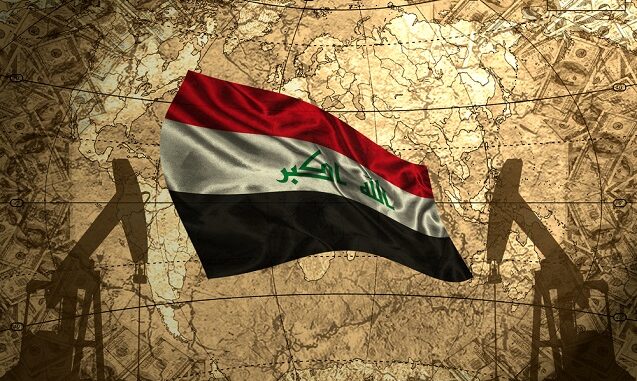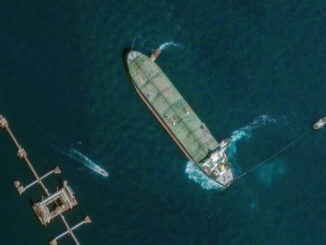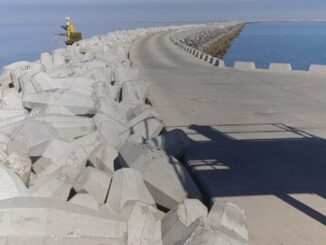
Dubai, 21 October (Argus) — The political stalemate that brought Iraq to the brink of civil war this year was broken earlier this month, paving the way for a new government to start investing the windfall revenue that the country has been generating from high oil prices. But the newly brokered consensus between major sectarian parties also signals a return to the “old ways” of doing politics in Iraq and with it a potential new crisis in the making.
One year on from last year’s elections, Iraq’s parliament this month finally decided on a new president, former minister of water resources Latif Rashid, a veteran of one of Iraq’s two main Kurdish political groups. Rashid’s Patriotic Union of Kurdistan (PUK) party is an ally of one of the country’s two main Shia political groups, the pro-Iran Coordination Framework. Following his election, Rashid named the Coordination Framework’s nominee Mohammed Shia al-Sudani as prime minister-designate and tasked him to form a new government.
An al-Sudani administration should be a formality thanks to an engineered consensus among most of the sectarian parties. The deadline for him to present his proposed government to parliament is 12 November. The notable dissenter is the Sadrist movement, Iraq’s other main Shia group led by powerful cleric Muqtada al-Sadr. By refusing to join the new government, the Sadrists have laid the foundation for their role as the main opposition, putting them on a collision course with the Coordination Framework.
The naming of al-Sudani as prime minister-designate marks a victory for former prime minister Nouri al-Maliki, a leading figure in the Coordination Framework and arch rival of al-Sadr. The Sadrists had opposed al-Sudani’s candidacy, and the recent developments will only feed the longstanding animosity between al-Sadr and al-Maliki. An al-Sudani premiership will also be welcomed in Tehran, as al-Maliki is Iran’s closest and most reliable ally in Baghdad.
Al-Sadr’s group won the most seats in last October’s election but failed to secure a big enough majority to form a government. Al-Sadr’s decision over the summer to withdraw his 73 elected lawmakers from parliament proved a strategic blunder, as it paved the way for the Coordination Framework to snatch many of those seats and become the biggest bloc. Whereas al-Sadr had wanted to form a majority government and squeeze out his Shia rivals, the Coordination Framework is opting for a national unity government under al-Sudani’s leadership. This will represent a return to consociational politics, something Iraqis have protested against since 2019 due to a general perception that a grand governing coalition is a recipe for corruption.
A turning point
The bitter rivalry between Iraq’s two main Shia camps turned violent last month, with armed clashes breaking out in Baghdad. But ultimately, it proved to be a turning point, as it fostered a deal for a new “governing coalition” between the Coordination Framework, a Sunni bloc led by speaker of the parliament Mohammed al-Halbousi and Iraq’s two rival Kurdish factions. An agreement between the Kurdish rivals — the PUK and the Kurdish Democratic Party (KDP) — over Rashid for the presidency also ensued.
The governing coalition deal has created uncomfortable bedfellows. Al-Maliki and the Barzani tribe that dominates the KDP have long been bitter rivals, with the latter allied to al-Sadr. Nonetheless, the pressure Baghdad has exerted on Erbil over control of the semi-autonomous Kurdistan region’s oil resources in recent months might have altered Kurdish calculations. The deal could end up forging an improved relationship between them. A delegation from the Kurdistan Regional Government is set to meet officials from Iraq’s federal oil ministry in Baghdad at the end of October.
Days ahead of his designation, al-Sudani told the Wall Street Journal that if his political group were to be successful in forming a new government, it would ask Opec to reconsider Iraq’s share of the group’s crude output. He also said that the recent Opec+ agreement to slash production targets by 2mn b/d “was not in Iraq’s favour”. Al-Sudani is not the first Iraqi politician to make populist claims when it comes to the country’s oil production, and he may struggle to follow through on the rhetoric.
Iraq’s Opec representative Mohammad Saadoun Mohsen made clear to Argus that the oil ministry and state marketer Somo are committed to the deal. Mohsen said Iraq plans to reduce domestic crude consumption rather than exports to comply with its lower output quota, which goes some way to answering al-Sudani’s affordability concerns. Moreover, limited export capacity has been a critical constraint on Iraqi production and could hamper any policy changes al-Sudani has in mind.
The formation of a new government should unblock oil sector investment, freeing up much-needed cash for postponed maintenance and expansion projects including work to increase crude export capacity by 150,000-200,000 b/d. It should also help to progress oil, gas and renewable energy projects covered by a $27bn deal signed with TotalEnergies in February.



